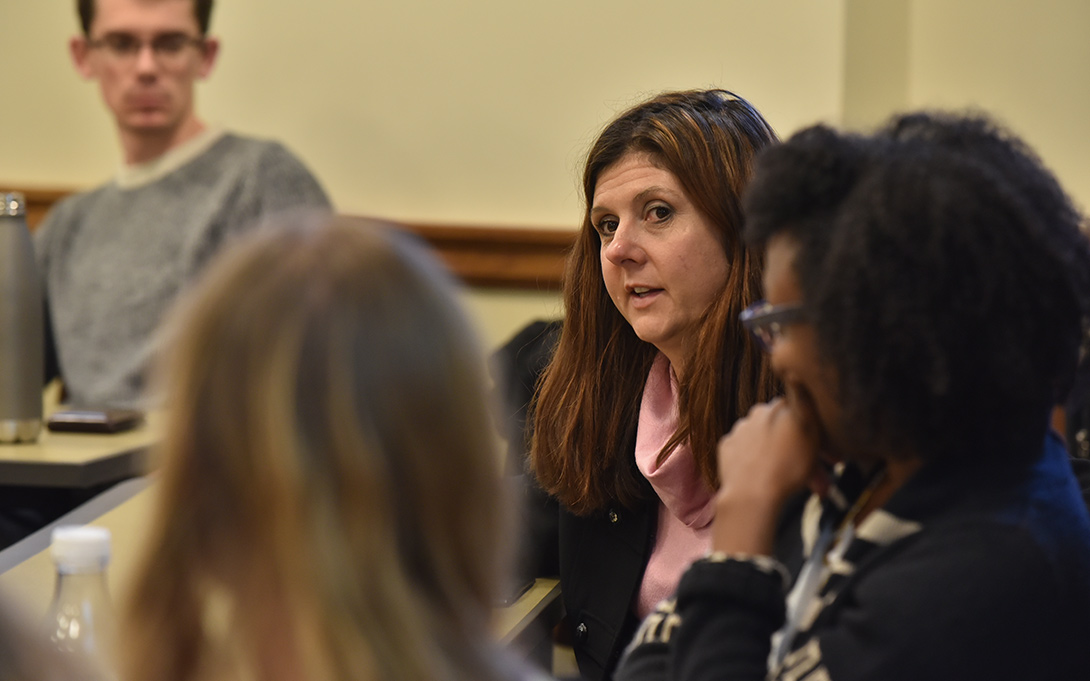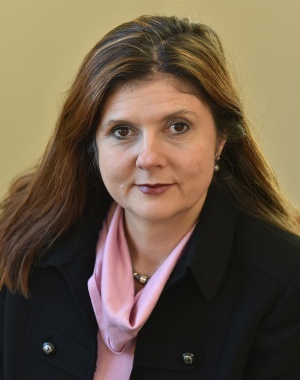
Economist Betsey Stevenson is keeping a close eye on the country's economic recovery, and provides insights in a number of news outlets this week.
"Recovery in the labor force requires getting people into jobs and then keeping them there," Stevenson told CU Today. "It takes time to get people in these jobs—to find the right matches ... It's going to be a little bit unsettling, but in the end, it will increase the labor force size. It can be slow to bring back people who exited the labor force, and the Delta variant is slowing things down a bit, as well."
After the Fed announced the tapering of bond and security purchases, Stevenson was not surprised.
"What the Fed said today is what everybody expected," Stevenson told Yahoo! Finance. "We are on the right path. We didn't need to go quite as fast as people might've been thinking we needed to go in July, but this idea that we would start tapering in November, that's what I expected before the news came out. I think that's what most people in the market expected, and that's what we heard. That's because we are starting to recover, and tapering is that first step before they start thinking about raising rates."
The pandemic has also provided an opportunity to discuss new economic reforms. Specifically, Stevenson has been focusing on childcare reform.
"By December of 2019, women held the majority of jobs where there's an employer. And I will never forget doing an interview in January of 2020 and saying I can't imagine what could happen that would lead women to fall behind men again any time in the next decade," she told Planet Money. "Turns out what I couldn't imagine was a global pandemic."
According to Stevenson, the lack of childcare support from the government has resulted in gender and education inequities since the childcare burden usually falls on mothers and since families can't all afford early childhood education.
"What we have done is create a nation of kids who are underinvested in, and that feeds into not just what our potential is as an economy, but it also feeds into inequality," she told Business Insider.
"People can't pay more for childcare than their own take-home earnings. That puts a limit on how much families are able to pay," Stevenson said to HuffPost. "The result is low wages for workers who aren't sufficiently rewarded for developing skills in child development."
But, the reflections and realizations that the pandemic has forced open up a policy window for action on this topic.
"It's driven by the fact that parents have to pay for preschool and kindergarten is available to our public school system," Stevenson told Business Insider. "The United States has failed to make the changes necessary to support working families, and I think that was one of our real vulnerabilities during COVID. This is our opportunity for reform."
Democrats in Congress are seizing that opportunity. One infrastructure bill they're considering would invest in things like universal preschool, paid family leave, an expanded child tax credit, and eldercare.
"Ramping up to something that looks like what other developed countries do, it sounds like a lot of money," Stevenson told The New York Times. "Instead of thinking about how much it costs, we should be asking, what are we getting? We should stop asking what's the price tag and start asking, what's the value?"
Read and hear the items featuring Stevenson below:
- Janet Yellen says she wouldn't be Treasury Secretary today if she 'didn't have an excellent babysitter 40 years ago', Business Insider, September 15, 2021
- Childcare Conundrum, NPR Planet Money, September 15, 2021
- Joe Manchin Doesn't Know What He's Missing, The New York Times, September 16, 2021
- Affordable childcare has a 'fundamental funding problem,' according to top Obama economist Betsey Stevenson: kids can't take out loans to pay for preschool like adults can for college, Business Insider, September 18, 2021
- Why a Transformation of Caregiving Could Be Biden's B.F.D., HuffPost, September 19, 2021
- The Fed continues to think inflation is transitory, Yahoo! Finance, September 22, 2021
- Insights Shared on the Jobs Market, CU Today, September 22, 2021
